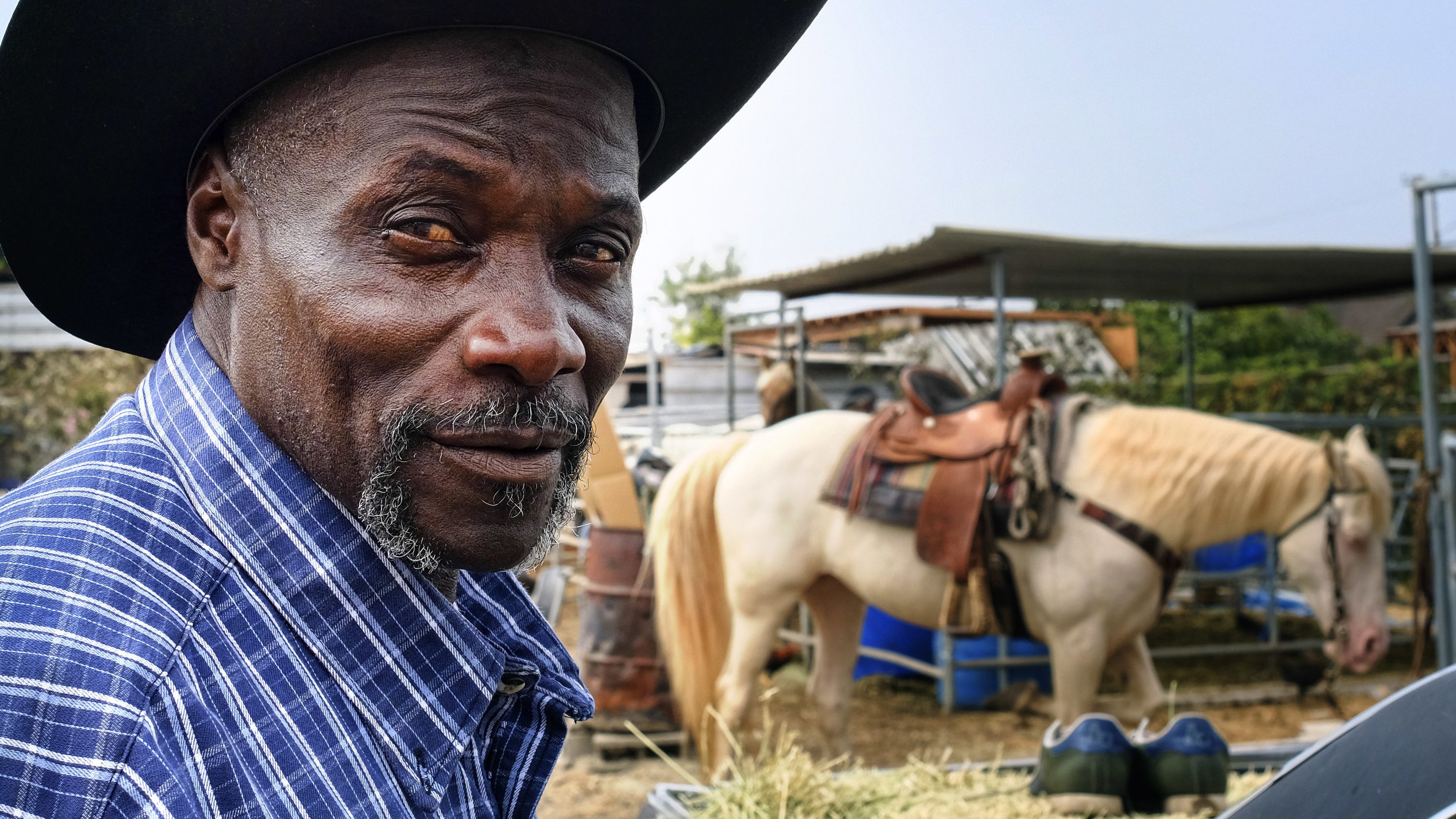

“We’re trying to be the guys who make it cool to wear Stetson hats and Wrangler jeans in the ’hood.” “At the end of the day, we want people to also think about us when they think about cowboys, not just a bunch of white guys in cowboy hats who smoke Marlboro cigarettes,” added Hook. After the Civil War, between 5,000-8,000 men and women became ranchers and herders, a fact that helps empower riders and change the community’s view of what a cowboy “should” resemble. “They were the underdogs just like we were.”Īn additional perk of the Cowboy’s program? Educating young Black people about the rich history of Black cowboys that’s often disregarded from history. “The throwaway horses that we were given ended up being the best horses for us because they had a feisty spirit and a chip on their shoulder just like we did,” he told the Times. Cowboy Randy Hook said that the horses needed rescuing just like the riders. Now, under the care of the Cowboys, they’re happy and healthy. There’s peace with the animals,” he said.Įven the horses have been rescued from a life of instability, malnutrition, and abuse. Compton Jr Posse founder Mayisha Akbar, Randy Savvy of the Compton Cowboys, Youth in Focus founder Walter Bodle, and poem excerpt by Los Angeles Poet. “I was always around shootings and gangs, but none of that happens when I’m in the stables with the horses.

In March, one of the Compton Cowboys told the New York Times that he credits the stables for getting him away from a dangerous lifestyle. The Compton Cowboy posse officially came together as a group in 2017, though the area of Richland Farms has been home to African American equestrians since the mid-20th century. and high murder rates 35 murders in 2016, with the crime index being nearly double the average in. Away from the violence, the youngsters were able to thrive and find a peaceful setting they didn’t know before. For the Compton Cowboys, living in a community best known for the gangster rap group N.W.A. The 10 founders met each other at a nonprofit stable in California when their families empowered them to seek safety and meaning outside of their communities rife with gang violence. The Compton Cowboys-a group of determined Black community leaders-ride horses through the city to mitigate and prevent racial violence by encouraging teens to trade crime for riding lessons. When you think of Compton, you may not automatically think of horseback riding, yet that’s exactly how this group is getting at-risk young people off the streets. Horseback riding naturally helps build coping mechanisms for the youth, in turn, youth gain respect for animals and nature, and eachother, building lifelong bonds.At times, help and guidance arrive in the most unexpected ways. Youth in our program also build discipline, self-esteem, and leadership.ĬJE serves as a safe haven away from the dangers of the streets, such as drugs, gangs, and poverty. Some of the academic areas we build upon are science, math, literacy, and cultural history. He launched Compton Cowboys in 2017 to continue his familys mission of offering horseback riding to at-risk youth. Our program not only teaches the highly esteemed skill of horseback riding, but academic achievement and character building. Combining Jamie's passion for educational and nonprofit programs, along with Randy's business savvy and knowledge of the equine world, the two decided to form the Compton Jr. Upon it's closure, neither of the two wanted such an important piece of the community to vanish, leaving hundreds of youth without such a program. They were once students of the widely known program, Compton Jr.

CJE was formed in response to the lack of programs available to youth in the community who are at risk for dropping out of school, incarceration, and poverty.įounded by Jamie Vance and Randall Hook, natives of Compton, CJE proves the importance of giving back to ones own community. Equestrians was developed to serve inner city youth in the hub city of Compton, along with local areas.


 0 kommentar(er)
0 kommentar(er)
